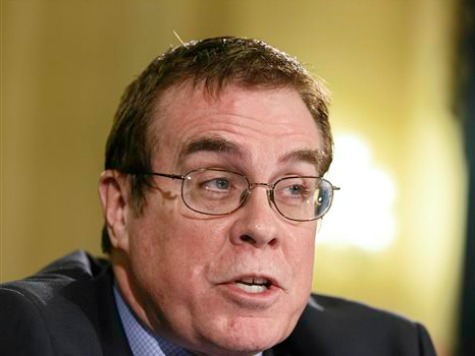On the floor of the House Wednesday, the House Committee on Veterans’ Affairs featured a dialogue between Chairman Jeff Miller and Dr. Thomas Lynch, assistant deputy undersecretary for health for clinical operations at the Veterans Health Administration. Another shocking piece of information about VA hospitals was revealed during that exchange.
Miller revealed he had received an email from an employee at the Los Angeles VA Medical Center in which the employee raised concerns over the status of patient wait times and the possible manipulation of records. The director of the facility responded to colleagues via email and said that the employee raising concerns was a “disgruntled employee.“ Later, however, a senior official remarked that “there appears to be inappropriate actions by the supervisor in Los Angeles.”
When Lynch responded to the email by saying that the VA told him that these matters involved the cancellation of radiology orders and that the patients were made aware of the changes, Miller took a quick look at a document handed to him and retorted that the email was not about radiology orders.
In 2011, Majority Whip Kevin McCarthy asked the Government Accountability Office (GAO) to audit major VA medical centers across the country. Finally, in 2013, the audit concluded that the scheduling policy in place at the VA was inherently flawed and was not representative of the actual wait times that veterans were enduring. On Wednesday, the inspector general report confirmed allegations in Phoenix that VA employees manipulated wait times.
The exchange between Miller and Lynch was as follows:
Miller: According to an internal VA email received under the subpoena, an employee in Los Angeles reported, up the chain of command, that wait times in the Los Angeles VA Medical Center was, in fact, being manipulated. Interesting, the director of the facility’s response was, “The employee was simply a disgruntled employee.”
In a related email, a senior official substantiated, and I quote, “There appears to be inappropriate actions by the supervisor in Los Angeles.” Endquote. Would you comment, for the committee’s behalf, what is going on in Los Angeles?
Lynch: Mr. Chairman, the only concerns that I am aware of, related to Greater Los Angeles, were concerns expressed by an employee regarding the cancellation of radiology orders which were felt to be stale, old, and no longer appropriate. It is my understanding, based on discussions with the chief of staff, as well as the chief of radiology, that this was done after a careful review of those orders, and the physicians were notified at the time of the cancellation, in case they needed to reschedule that appointment or request.
Miller: So every single veteran was contacted who had one of their orders cancelled?
Lynch: That is what I was told, Mr. Chairman.
Miller: Well, let me give you a little hint. The VA won’t tell you the truth. So if you’re relying solely on the management of these facilities to tell you the truth, you’re not going to get it. You’re just not going to get it. (Miller studies the document handed to him.) The complaint, by the way, before my time runs out, very quickly, is not in radiology; it’s exactly what we’re seeing all over the country. So I would suspect that you’d better have somebody go to Los Angeles quickly before they start destroying secret lists.
Lynch: Mr. Chairman, if you share the documentation with me, I will be happy to follow up. I think you know my commitment to veterans and my commitment to understanding problems with their VA healthcare system.

COMMENTS
Please let us know if you're having issues with commenting.